
Beautiful Loser is the eighth studio album by American rock artist Bob Seger, released in 1975. This album marked Seger's return to Capitol Records after a four-year split. His previous record with Capitol was Brand New Morning in 1971.

Stranger in Town is the tenth studio album by American rock singer Bob Seger and his second with the Silver Bullet Band, released by Capitol Records in May 1978. Like its predecessor, the Silver Bullet Band backed Seger on about half of the songs and the Muscle Shoals Rhythm Section backed Seger on the other half.
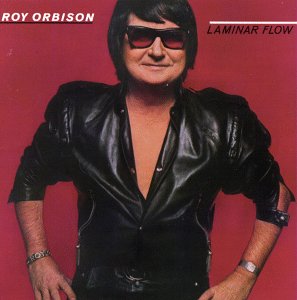
Laminar Flow is the twenty-first album by Roy Orbison recorded at Wishbone Recording Studio in Muscle Shoals, Alabama and released in 1979 on the Asylum Records label. It was the last album of new material Orbison would release in his lifetime. His next studio effort, In Dreams, featured re-recordings of old Orbison hits while Mystery Girl and King of Hearts, his final collections of all-new material, were released posthumously.

Michael Alexander Kellie was an English musician, composer and record producer.

The Paul Simon Anthology is the fourth greatest hits compilation album by American singer-songwriter Paul Simon, which was released in 1993.

The Rumour is the thirteenth studio album by Olivia Newton-John on 2 August 1988. The title track was written by Elton John and Bernie Taupin, features backing vocals and piano by John. The album featured the singles "The Rumour", "Can't We Talk It Over in Bed" and the Australian-only promo-single "It's Always Australia for Me", which was released for the Australian Bicentenary in 1988. This was also her first album not produced by long-time producer, John Farrar.
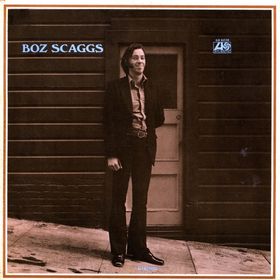
Boz Scaggs is the second studio album by American musician Boz Scaggs, released in 1969 by Atlantic Records. A stylistically diverse album, Boz Scaggs incorporates several genres, including Americana, blue-eyed soul, country, and rhythm and blues. The lyrics are about typical themes found in blues songs, such as love, regret, guilt, and loss. Scaggs recorded the album at Muscle Shoals Sound Studio with producer Jann Wenner, the co-founder of Rolling Stone magazine. The Muscle Shoals Rhythm Section heavily contributed to the album, which included a young Duane Allman, before his rise to fame with the Allman Brothers Band.
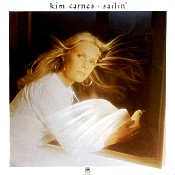
Sailin' is the third studio album by Kim Carnes, released in 1976. The record was recorded, in part, in Muscle Shoals, Alabama with the famed Muscle Shoals Rhythm Section. Although this album hasn't been released on CD, all of the album's songs can be found on the European CD "Kim Carnes - Master Series" released by A&M in 1999.

Mike Harrison was an English musician, most notable as a principal lead singer of Spooky Tooth and as a solo artist. He was also the lead singer in The V.I.P.'s, Art and the Hamburg Blues Band, among others.
David Wayne Perkins is an American rock and R&B guitarist, singer, songwriter and session musician.
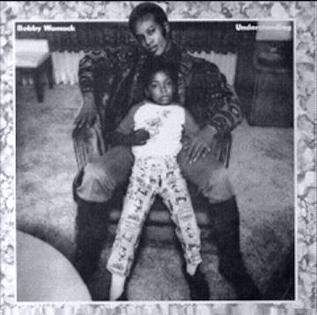
Understanding is the fourth studio album by American musician Bobby Womack. The album was released on March 30, 1972, by United Artists Records. Womack recorded Understanding in Memphis, Tennessee at American Sound Studio and in Muscle Shoals Sound Studios in Muscle Shoals, Alabama. At Muscle Shoals, he utilized top session players, including drummer Roger Hawkins, guitarists Jimmy Johnson and Tippy Armstrong, bassist David Hood and keyboardist Barry Beckett.
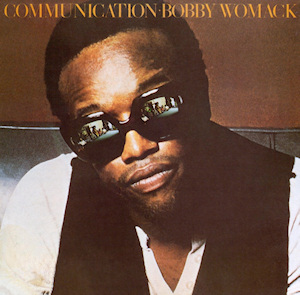
Communication is the third studio album by American musician Bobby Womack. The album was released on September 15, 1971, by United Artists Records. It reached No. 5 on the Billboard R&B chart and No. 20 on the Billboard Jazz Chart in 1972. It included the hit single, "That's The Way I Feel About Cha", which charted at No. 2 on the Billboard R&B Singles chart and No. 27 on the Billboard pop chart. The album became Womack's breakthrough spawning the hit single "That's The Way I Feel About Cha" and a favorite Womack album track, "(If You Don't Want My Love) Give It Back", which Womack recorded three times after the original, the first remake, a slower acoustic version, was issued on the soundtrack of the film, Across 110th Street, and an instrumental by J. J. Johnson's band. The fourth time Womack recorded it was with Rolling Stones singer and musician Ron Wood. Womack recorded his own versions of James Taylor's "Fire and Rain", Ray Stevens' "Everything Is Beautiful" and featured a spoken word monologue in his cover of the Burt Bacharach and Hal David standard, "(They Long To Be) Close to You".

Don't Look Back is an album released by blues singer-songwriter John Lee Hooker in 1997 that was co-produced by Van Morrison and Mike Kappus. Van Morrison also performed duets with Hooker on four of the tracks. The album was the Grammy winner in the Best Traditional Blues Album category in 1998. The title duet by Hooker and Morrison also won a Grammy for Best Pop Collaboration with Vocals.
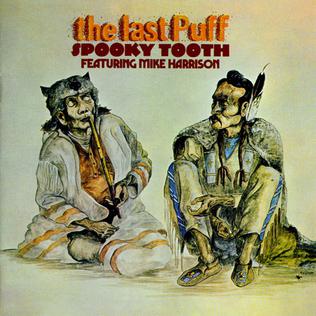
The Last Puff is an album by British rock band Spooky Tooth, released in 1970.

Rainbow Rider is the third solo album by Mike Harrison, most notable as a principal lead singer for Spooky Tooth. It was released in 1975, on Island Records in North America, and Goodear Records in the United Kingdom. In addition to being part of Harrison's body of solo work, the album is notable as containing one of the earlier and comparatively rare recordings of the Bob Dylan song, "I'll Keep It With Mine", written in 1964 and recorded by Nico, Fairport Convention and Marianne Faithfull, among others. The album was recorded in Nashville, subsequent to Harrison's departure from Spooky Tooth, following the release of Witness (1973). The album features a number of Nashville's best known session musicians of that time, as well as Morgan Fisher, then of Mott the Hoople, and Mick Jones, formerly of Spooky Tooth and later founder of Foreigner. The album was produced and engineered by Chris Kimsey, whose reputation as a recording engineer had developed when he was the engineer on the Rolling Stones' Sticky Fingers, released in 1971. Rainbow Rider was one of Kimsey's first engagements as a producer. Still at an early stage of his career, Kimsey had produced Monkey Grip, the first Bill Wyman solo album, released in 1974, one year prior to Rainbow Rider.

Cross Purpose is the seventh and final studio album by Spooky Tooth, released on Ruf Records in 1999. It was the band's first album in 25 years, following The Mirror, released in 1974.
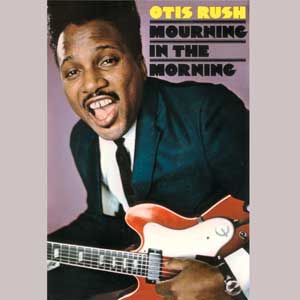
Mourning In the Morning is an album by the American blues singer and guitarist Otis Rush, released in 1969. Characterized as his first album, Rush had been cutting singles since 1955. The album fuses Rush's deep blues sound with soul and rock. The album was panned by many critics, but has since developed a cult following.

Peabo is the debut album by soul vocalist Peabo Bryson. Luther Vandross was the backing vocalist.

Muscle Shoals Nitty Gritty is a 1970 album by jazz flutist Herbie Mann. It was released on Mann's Embryo Records label, and distributed by Cotillion Records, a division of Atlantic Records.

Don't Freak Me Out is the first and only album released by English musician Jimmy Stevens in 1972. The album was produced by Maurice Gibb. But in the United States, it was released in January 1973 and was called Paid My Dues.



















